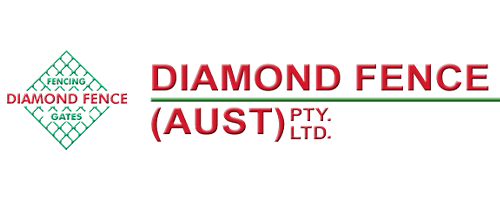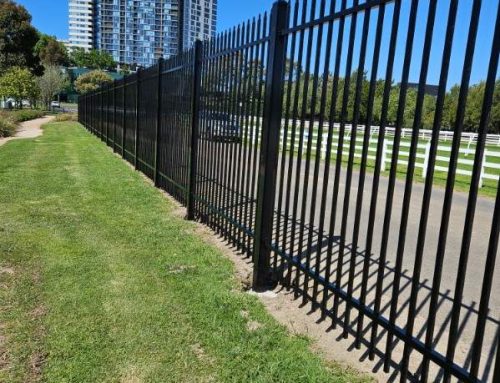Steel Fencing FAQ To Help You Out
When you have a specific steel fencing question, what do you do? You Google it. Then you find yourself on a fencing contractor’s webpage FAQ section, and most likely you won’t find your answer there. Why? Because those Q&A are related to that fencing contractor’s specific products or services. This is why we came up with more neutral fencing Q&A-s that are not related to any certain fencing company or their fencing services and products. Neither are the following questions in any specific order. Let’s begin!
1. How long will my steel fence last? Steel fences are one of the longest-lasting fences without a doubt. For how long will a steel fence last if put in numbers? Firstly, it varies. We are saying that because the lifespan of a steel fence depends on its protection. By protection, we mean how well have you been able to protect your steel fence from corrosion and other environmental factors. For example, if your fence is located by the sea, then corrosion can be sped up by the salt.
Coming back to numbers, if your steel fence has been protected from corrosion, you can get 20 years or more from hollow steel. A solid-steel, cast-iron, and tubular-aluminum fence can last even a lifetime!
2. How can I protect my steel fence from corrosion? This is a legitimate question based on what we just said about the importance of protecting your steel fence from corrosion. This is the best way to extend the life of your fence. As we may know, corrosion is a gradual destruction of materials by chemical and/or electrochemical reaction with their environment. There is not a lot when it comes to what we can do to affect the environment. But we can put a protecting layer on a steel fence. There are a few. The most popular is using galvanized steel. Galvanizing is a process where you apply a thin zinc coating on your steel and that zinc coating will corrode before the metal underneath it, thus expanding the lifecycle of the fence.
Extra protection can be added by using powder coating, which also adds a protective layer that will help to avoid early corrosion.
If you need extra protection on top of galvanizing, you may consider adding PVC coating as this is also a way to protect from corrosion. The PVC coating is usually used for chain wire fences. Diamond Fence offers PVC coatings in black and green colour. These two colours are the most popular and will blend into the environment perfectly.
3. How complicated is fence installation if I do it by myself? It depends on your skill level, equipment available and many other factors. If you are experienced and you have the proper equipment to install a steel fence, it shouldn’t be that difficult. It might be time-consuming though, depending on how big is the fencing project.
If you are not that experienced, you don’t have proper tools, then we would recommend thinking twice before undertaking a large fencing project. It might be too stressful and the outcome might not be as you initially planned. In that case, you might want to use fencing contractors with proper fencing tools as they will make sure to install a fence that will last for many decades, maybe even a lifetime.
If you do decide to do it on your own, the Internet is full of recommendations on how to do it. Just make sure you will find a trustworthy source! And of course, find a trustworthy fencing supplier as the material you will be using should comply with Australian Standard for a better quality fencing.
4. Which fencing type should I install? There are many fencing types out there. Some of the examples of the fencing types are chain link fencing, also known as chain wire fencing, tubular steel fencing, welded mesh fencing, Colorbond steel fencing, palisade fencing, and maybe you need to add some gates as well. The choice might be quite confusing.
When deciding which fencing type to turn to, consider some of the following:
1. Location (protection from corrosion, but also the space available).
2. Is it for a domestic or industrial purpose – does the looks matter?
3. Is it for security purposes – how strong does your fence need to be?
4. The cost of the fence – price point will change significantly according to the style and material used
5. Is it for the cattle? In most cases, your cheapest choice might be installing an electric fence.
As you see, your specific needs will determine what kind of fence will suit you the best. The best way is to contact a fencing contractor and they will advise the best choice according to your requirements.
5. How high can I build my fence? The height of your fence can be determined by several factors. Is it protecting you from intruders? If yes, then you want to have a fence as high as you possibly can. Also, if you want to install a farm fence, you should know the characteristics of the animals you are installing it for. For example, goats love to jump and can easily jump over the fence if it’s not high enough.
If using an experienced and trusted fencing contractor, they will be able to make the fence according to your requirements. The only thing you should be careful about is the height standards implemented by your local council. Before the installation of your fence, make sure you have advised with your local council regarding the height of your new steel fence.
6. What’s the price of fence installation? We know that you’d like to see some numbers in this answer, but you won’t. Spoiler, right! It is only because the price of a fence will depend on many factors! Starting with the fencing contractor used, material, fencing type, the area covered, if any gates have been used, location as transportation cost plays a role as well. Therefore, giving you an exact number would be a lie. It is all based on a case by case situation. Your best bet is to contact your chosen fencing contractor and just ask! They are more than happy to offer a free quote.
7. How beneficial is powder coating? We mentioned the powder coating briefly. To answer the question, it’s very beneficial. Firstly, it gives your fence great protection against corrosion, and on the other hand, gives you such flexibility when it comes to choosing the colour of your fence!
8. Is it easier/cheaper to fix an existing damaged fence, or install a new one? It depends on the damage that your fence has. If it’s minor damage, then fixing it up, even by yourself, is a cheaper way to go about it. If the damage is not so minor, and please remember that rust does spread, then in some cases fixing the fence is not the smartest decisions as you will keep on needing those minor fix-ups and in the long run, you will waste more time and money than when installing a new fence.
Fencing experts are good at giving that kind of evaluation. They will let you know if your fence needs repair or substitution overall.
Here you go! Some fencing questions answered!
If you have any other fencing questions, then turn to us and our experienced fencing team will help you out!
Give us a call on (03) 9753 4566, shoot us an email on info@diamondfence.com.au, or just get a FREE online fencing quote.








